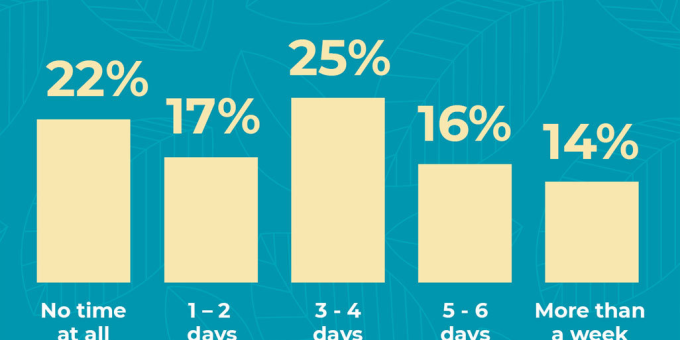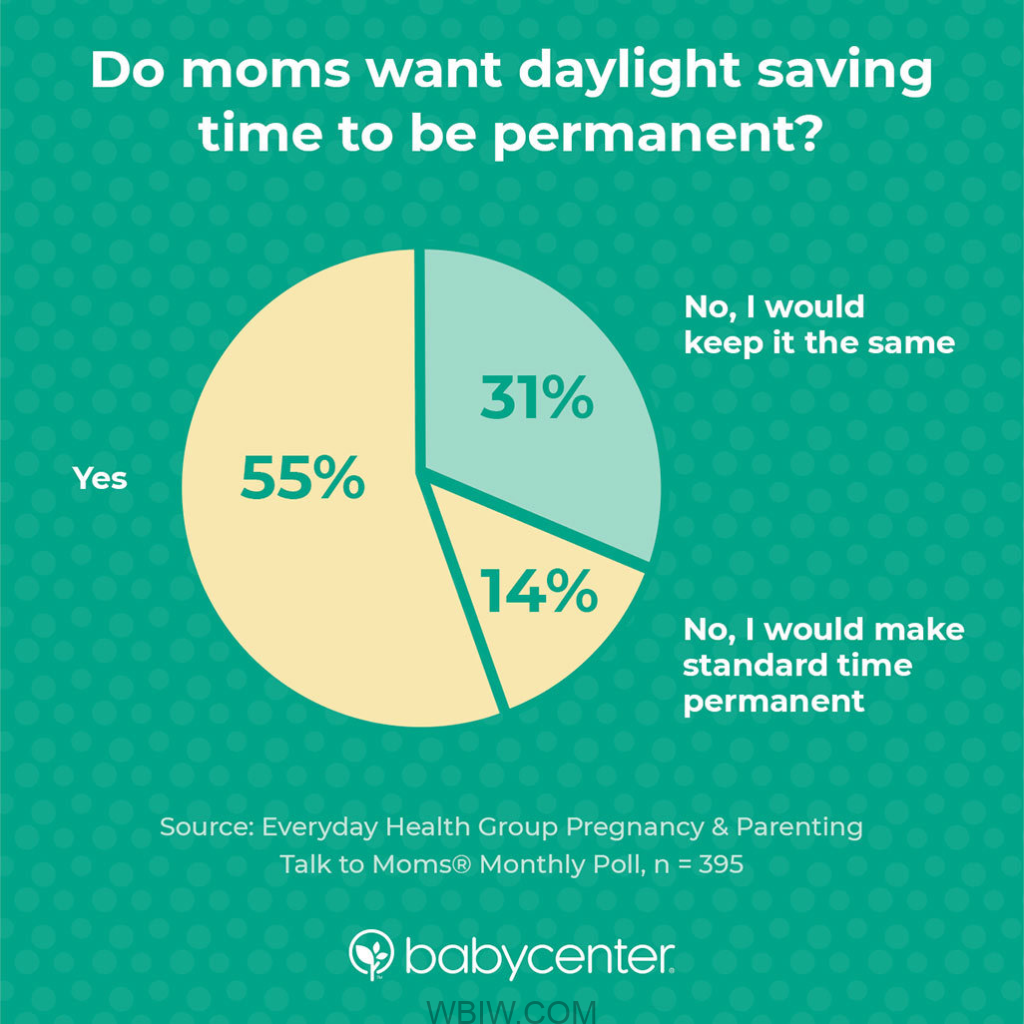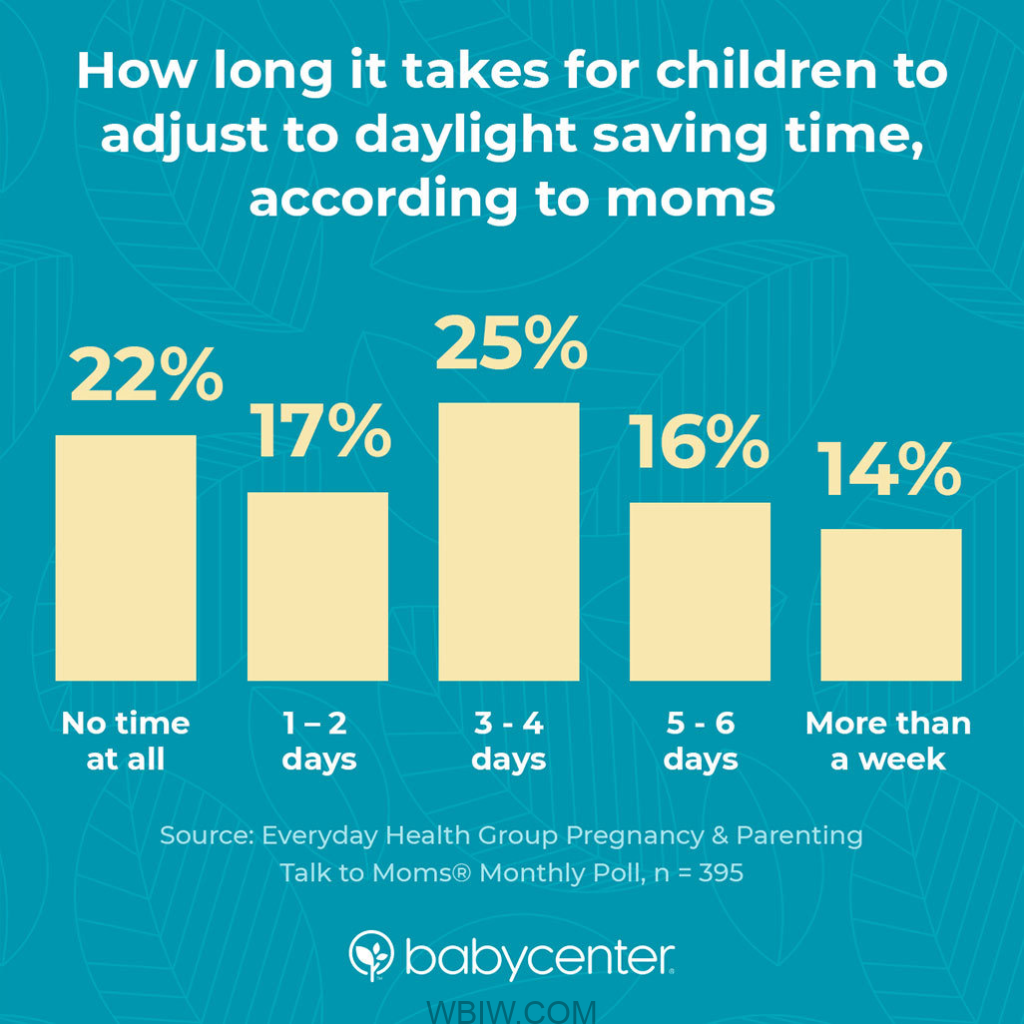
INDIANA – Daylight saving time starts this weekend, extending daylight for spring and summer evenings – and causing serious disruption to the lives of families with young children.
Clocks will spring forward an hour on Sunday, March 12 at 2 a.m.

According to a poll by Everyday Health Group, BabyCenter’s parent company, 55 percent of kids under 5 take three or more days to adjust to the switch. And they’re not the only ones affected.

“Children will be maybe a bit more irritable, a bit sleepier, a bit fussier, but there are a lot more serious things going on with the adults, too,” says Funke Afolabi-Brown, M.D., a pediatric respiratory sleep medicine physician and the expert host of BabyCenter’s Baby Sleep 101 course.
The 395 moms in our survey say they miss out on an additional one to two hours of sleep following daylight saving time, on top of the one hour they “spring” past with the time change. More than a third also say they experience grumpiness, exhaustion, and disruptions to their bedtime and wake time.
Moms face an additional challenge in that they can’t opt to sleep in on Sunday — if their kids still get up early, so do they.
Most moms support the idea of doing away with time changes
If the moms surveyed got to decide, they would eliminate clock switching altogether. More than half (55%) support having daylight saving time last all year long, and 14% would want standard time year-round. Only 31% support keeping things the same as they are now.

A bipartisan group of U.S. senators just reintroduced legislation last week that would make daylight saving time permanent. The Sunshine Protection Act would do away with clock switching in favor of sunnier evenings. Last year, the Senate voted unanimously to pass the Act, but the bill stalled out in the House of Representatives over disagreements on whether to make daylight saving time or standard time the new normal.
Many sleep experts and professional organizations, including the American Academy of Sleep Medicine, support getting rid of the moving clocks — but by making standard time permanent, not daylight saving time.
“That’s actually better aligned with our circadian rhythm,” Dr. Brown explains. The brighter mornings and darker evenings sync up more smoothly with our internal biological clocks — especially in the case of young kids, who are naturally early risers, she says.
How parents can help children adjust to daylight saving
While legislators debate the future fate of twice-yearly time changes, parents should start preparing their children (and themselves) for “springing forward” as soon as possible.
“What you’re trying to do is make an adjustment to that circadian rhythm, which is the internal clock, but there are also external cues that our body responds to that help that adjustment,” Dr. Brown says. “You literally should try to move your entire schedule earlier.”
It’s best to try to adjust to DST in the days leading up to the time change, says Dr. Brown. That’s because it helps to proactively create a buffer against sleep deprivation and get used to falling asleep when it’s light out, as opposed to dealing with sleep loss and the confusing cue of a sunny bedtime all at once.
Dr. Brown suggests that parents and caregivers move their family’s bedtimes, mealtimes, and other routines slightly earlier and earlier for the three to four days leading up to DST. About 15 minutes per day should do the trick.

So if you normally put your kiddo to bed at 7 p.m., tuck her in at 6:45 on Thursday, 6:30 on Friday, and 6:15 on Saturday. Then a 7 p.m. bedtime on Sunday won’t feel so jarring.
If that’s too complicated, working in a 30-minute adjustment on Saturday can also buffer against that lost hour of sleep. Families can also help resync their systems by spending time outside in the mornings and minimizing bright light exposure in the evenings.
As a busy parent, you’re not alone if you’re feeling behind on all of these schedule changes. “If you’re not able to start a few days ahead, there are still things that you can do to make that adjustment easier,” Dr. Brown says. “And that will be jumping right in and making sure you align yourself very, very quickly to the new time change as soon as possible.
Ultimately, you and your kids will probably adjust within three to five days, she says. Plus, this springtime leap will likely go over better with young kids (who are prone to being early birds) than the time change in the fall. That’s another bright side to the brighter evenings to come.
Survey methodology
The Everyday Health Group Pregnancy & Parenting Talk to Moms Monthly Poll was conducted by Everyday Health Group – Pregnancy and Parenting between February 28 and March 3, 2023. We surveyed 395 respondents who are pregnant or have children up to 5 years old. The survey was fielded among the Dynata Research Panel.
Information provided by Caroline Picard of BabyCenter.



